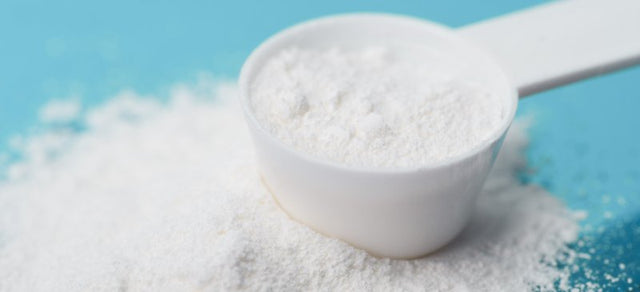STUDY DESIGN
Randomized Double-Blind Controlled Study
Author Information Department of Science and Technology Deerland Enzymes
Ana Maria Cuentas , John Deaton, Sonaina Khan, John Davidson and Courtney Ardita
OBJECTIVE
People who have at least one bowel movement per day and pass good textured feces (not too hard or soft are considered to have ‘normal’ bowel function [1].
However, occasional constipation and/or diarrhea can be a burdensome gastrointestinal issue that occurs in many individuals and whose treatment remains challenging. Some health professionals use the Bristol Stool Chart to classify stool type as it may be difficult to differentiate between normal and abnormal stools [1]. The scale can help assess the consistency and the time stools spent in the bowels. Type 1 stools have spent the longest time, while type 7 stools spend the least time (Refer to Figure 1 for the Bristol Stool chart used in this study).
People whose stools are classified as type 1 or type 2 are individuals who suffer from constipation. The gastrointestinal discomfort can be the result of many factors including a poor diet, excess stress or the normal aging process. Constipation can often be caused by acute dysbiosis which is common for those that are on antibiotic treatment or low fiber diets. When there is a balance in the normal flora of the gut, beneficial bacteria can hold water facilitating the passing of feces. When absent, the stools lack a normal amorphous quality and become formed lumps which can be hard and abrasive. Нe typical diameter of these lumps can range from 1 to 2 cm, and can be painful to pass due to their hard and scratchy nature. On the other hand, people who fall within the 5-7 stool range may have a hyperactive colon (fast motility) or excess dietary potassium. These people may suffer from sudden dehydration or stress-related spikes in blood pressure; both conditions can cause the rapid release of water and potassium from blood plasma into the intestinal cavity. In addition, stools in this range are indicative of a hypersensitive personality prone to stress, diets rich in spices, fats, high mineral contents and the use of osmotic (mineral salts) laxatives. Probiotic supplementation of the intestinal microflora may promote healthy intestinal homeostasis. Figure 1: Bristol Stool chart.
The Bacillus species are rod-shaped, spore-forming, aerobic, gram-positive bacteria that are ubiquitous in nature. There is evidence that B. subtilis might be a part of the normal gut flora of humans. Some human intestinal biopsy samples have shown that subtilis does populate the gut in humans as normal human intestinal flora. Bacillus subtilis has been used abundantly in traditional ethnic food processing in East Asia. Natto, in particular, is a cheese-like food, processed by inoculating soaked and steamed soybeans with live Bacillus from rice straw [2,3]. Although the cultural history of B. subtilis fermentation is well known, research on modern uses and consumption of B. subtilis is comparatively very recent. Clinical trials have shown that B. subtilis is safe for consumption and beneficial for digestive health [4,5].
The term probiotic means “for life” in Greek. It was first used in 1965 by Lilly and Stillwell [4] to name microorganisms that are beneficial to consume. The general health benefits of consuming probiotics have been shown in both animal and human studies. As a component of the human microbiome, Bacillus subtilis has the ability to promote gastrointestinal health, including helping its host in digestion, making it an ideal probiotic. The purpose of this double-blind, randomized study was to determine the efficacy of B. subtilis DE111 in capsule form for regulation of bowel movements.
METHODS
50 adults (18-65 years of age at the time of participation) who suffered from occasional constipation and or diarrhea were assigned to consume either 1 × 109 CFU of DE111 or placebo. Each group was instructed to consume one capsule per day with a meal for 90 days. Efficacy was assessed through participant reported bowel movement (BM) records as well as dietary intake logs.
RESULTS
Bacteria make up more than 50% of the composition of a healthy person’s stool and play a major role in the quality and frequency of bowel movements. Probiotics are live microorganism that confers a gastrointestinal health benefit to the host. Gastrointestinal regularity may be the result of several potential probiotic mechanisms of action. Нe presence of probiotics may modify the gastrointestinal microbiota. This beneficial bacteria may release metabolites that can alter gut function, including satiety and motility. Some probiotics can increase the production of lactate and short-chain fatty acids, reducing luminal.
DE111 significantly improved gastrointestinal discomfort including constipation and diarrhea over the course of the study. Individuals in the DE111 group reported an increased frequency of normal type stools compared to those in the Placebo group. Therefore, a B. subtilis DE111 dose at 1 billion CFU/day may improve occasional constipation and diarrhea while helping to maintain gastrointestinal health.















